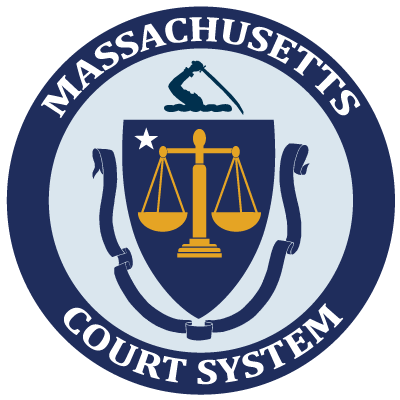- Massachusetts Supreme Judicial Court
- Appeals Court
- Massachusetts Court System
Media Contact
Jennifer Donahue and Erika Gully-Santiago
BOSTON, MA — The Supreme Judicial Court and its Executive Committee on Massachusetts Evidence Law today announced the release of the 2020 edition of the Massachusetts Guide to Evidence. The Justices of the Supreme Judicial Court recommend use of the Guide by the bench, bar, and public.
"I commend the members of the Executive Committee for their excellent work updating the Massachusetts Guide to Evidence to reflect new legal developments," Supreme Judicial Court Chief Justice Ralph D. Gants said. "Attorneys, judges, and self-represented litigants rely on the Guide as an invaluable practical research tool and important resource for understanding Massachusetts evidence law."
The 2020 edition is the twelfth annual edition of the Guide. An electronic version of the Massachusetts Guide to Evidence is available without charge on the court's website, where it can be searched and downloaded. The Official print edition of the Massachusetts Guide to Evidence is published by the Flaschner Judicial Institute, which is again providing a complimentary copy to every sitting judge in the Commonwealth. The 2020 Guide will be available for purchase from the Institute and Massachusetts Lawyers Weekly. The Massachusetts Guide to Evidence assembles existing Massachusetts evidence law in an easy-to-use document organized similarly to the Federal Rules of Evidence. The Guide includes extensive explanatory notes and citations to pertinent authorities.
The 2020 edition of the Guide reflects developments in Massachusetts evidence law that occurred between January 1, 2019 and December 31, 2019, and incorporates dozens of new opinions issued by the Supreme Judicial Court and the Appeals Court. An exception to the Guide’s currency is that one significant decision, Adoption of Luc, 484 Mass. 139 (2020), decided after the December 31, 2019 deadline, is included to make that decision immediately available to judges and attorneys practicing in the area of Care and Protection, Child Custody, and Termination of Parental Rights cases.
The 2020 edition contains significant revisions to the notes of Section 701 regarding opinion testimony by lay witnesses, Section 703 regarding bases of opinion testimony by experts, and the Introductory Note to Article VIII, Hearsay, on the topic of the right to confrontation. In addition, the 2020 edition includes significant revisions to the Guide’s Article XI miscellaneous provisions, including changes to the sections and notes in Section 1112 regarding eyewitness identifications and Section 1116 concerning peremptory challenges. The 2020 edition also revises the text to Section 804(a)(3) and its note to reflect a newly recognized criteria for a declarant’s unavailability in civil cases.
The 2020 edition also includes, for the first time, a chart that compares each section of the Guide to the corresponding Federal Rule of Evidence, if any. This is the committee's first effort to undertake a wholesale comparison between the two bodies of law. The chart is intended to assist lawyers that practice in both Massachusetts and Federal courts, and also recognizes that many law schools now teach the law of evidence primarily through the study of the Federal Rules of Evidence.
In 2006, the Supreme Judicial Court established the Advisory Committee to prepare a Massachusetts Guide to Evidence at the request of the Massachusetts Bar Association, the Boston Bar Association, and the Massachusetts Academy of Trial Attorneys. In 2008, the Supreme Judicial Court appointed the Executive Committee of the Advisory Committee on Massachusetts Evidence Law to monitor and incorporate new legal developments and produce annual new editions of the Guide.
Appeals Court Judge Peter Agnes chaired the Executive Committee and served as the editor-in-chief of the Guide until his retirement in early April 2020. The other members of the Executive Committee are: Hon. Mark S. Coven (editor) of the District Court, attorney Elizabeth N. Mulvey (editor), Clerk of the Appeals Court Joseph F. Stanton (reporter), Hon. Gregory I. Massing of the Appeals Court, Hon. Heidi Brieger of the Superior Court, Hon. Barbara M. Hyland of the Probate and Family Court, Hon. Gloria Y. Tan of the Juvenile Court, Hon. Dalila Wendlandt of the Appeals Court, Supreme Judicial Court assistant legal counsel Timothy E. Maguire, New England Law Boston Professor Philip K. Hamilton, Boston College Law School Professor R. Michael Cassidy, Benjamin K. Golden, Esq., Edmund P. Daley III, Esq., Appeals Court law clerks Sean C. Connolly, Esq. and Mary E. McBride, Esq., Hon. R. Marc Kantrowitz (editor-in-chief emeritus), Hon. Stephen M. Limon of the Juvenile Court (retired member and special advisor), and Supreme Judicial Court Justice David A. Lowy, who has been a member of the Committee since its inception, and now serves as a consulting member.
###
